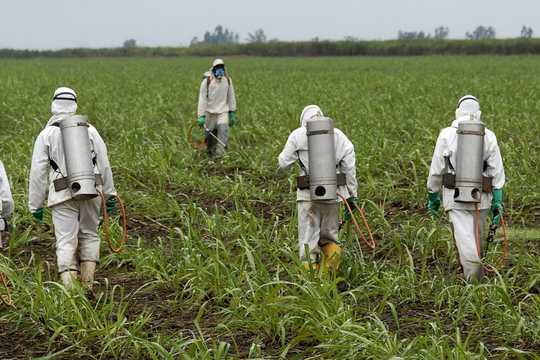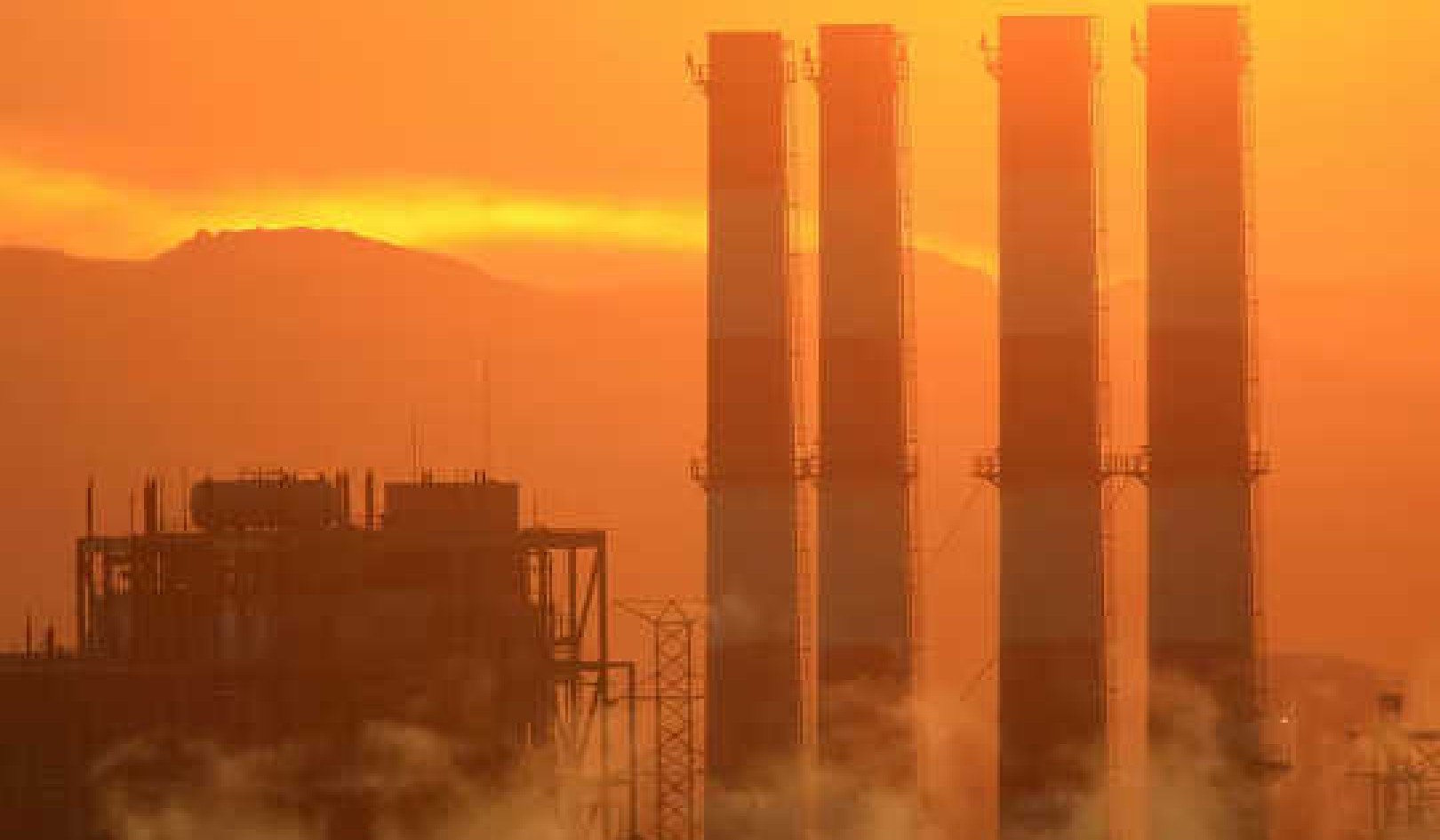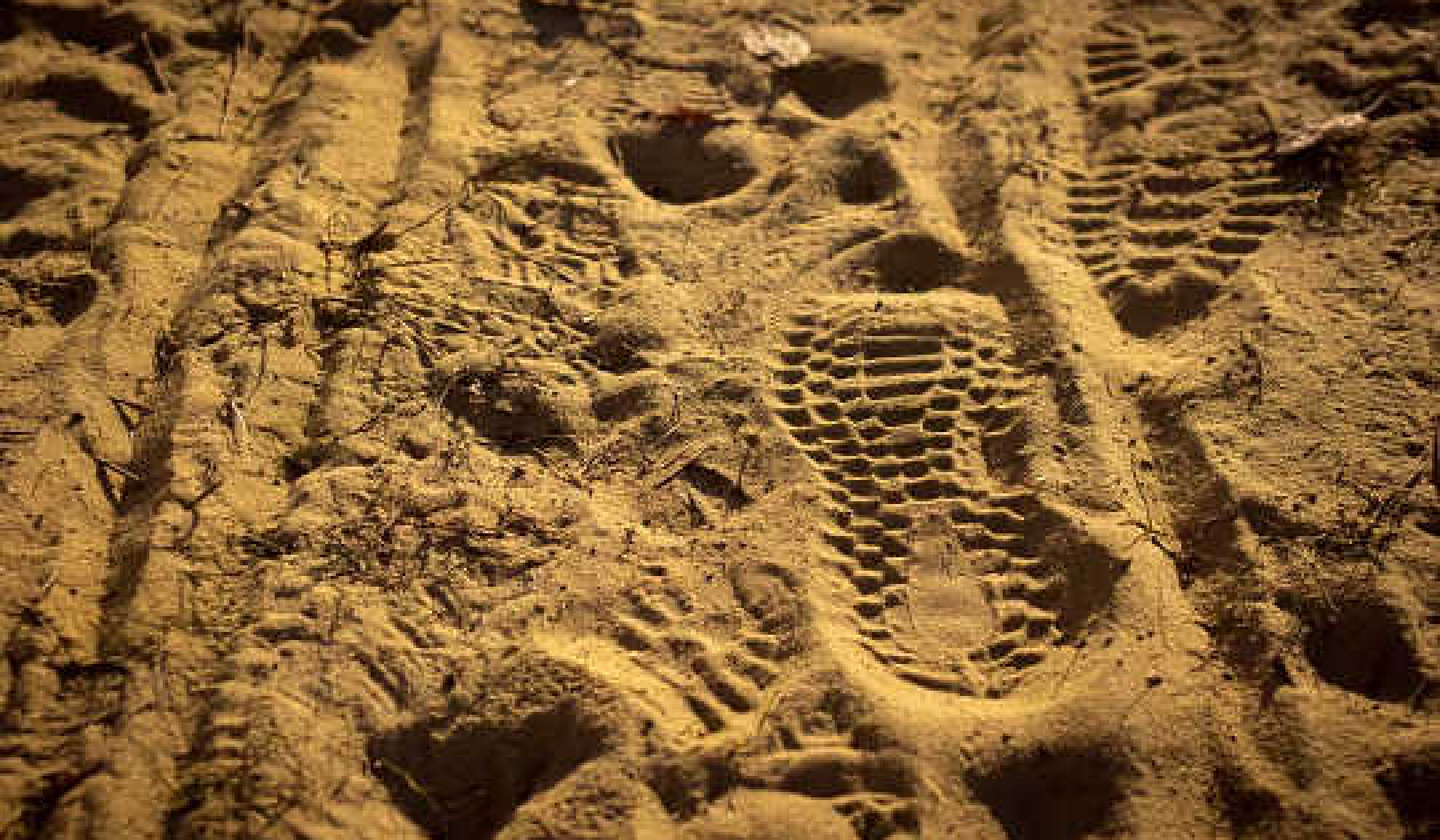
Roundup can trigger loss of biodiversity, making ecosystems more vulnerable to pollution and climate change, researchers report.
The widespread use of Roundup, one of the world’s most widely used glyphosate-based herbicides, on farms has sparked concerns over potential health and environmental effects globally.
Since the 1990s, use of the herbicide boomed, as the farming industry adopted “Roundup Ready” genetically modified crop seeds that are resistant to the herbicide.
“Farmers spray their corn and soy fields to eliminate weeds and boost production, but this has led to glyphosate leaching into the surrounding environment. In Quebec, for example, traces of glyphosate have been found in Montérégie rivers,” says Andrew Gonzalez, a biology professor and chair in conservation biology at McGill University.
To test how freshwater ecosystems respond to environmental contamination by glyphosate, researchers used experimental ponds to expose phytoplankton communities (algae) to the herbicide.
“These tiny species at the bottom of the food chain play an important role in the balance of a lake’s ecosystem and are a key source of food for microscopic animals. Our experiments allow us to observe, in real time, how algae can acquire resistance to glyphosate in freshwater ecosystems,” says coauthor Vincent Fugère, a postdoctoral researcher.
The researchers found that freshwater ecosystems that experience moderate contamination from the herbicide became more resistant when later exposed to a very high level of it—working as a form of “evolutionary vaccination.”
According to the researchers, the results are consistent with what scientists call “evolutionary rescue,” which until recently had only been tested in the laboratory. Previous experiments by the Gonzalez group showed that evolutionary rescue can prevent the extinction of an entire population when exposed to severe environmental pesticide contamination thanks to the rapid evolution.
However, the researchers note that the resistance to the herbicide came at a cost of plankton diversity.
“We observed significant loss of biodiversity in communities contaminated with glyphosate. This could have a profound impact on the proper functioning of ecosystems and lower the chance that they can adapt to new pollutants or stressors. This is particularly concerning as many ecosystems are grappling with the increasing threat of pollution and climate change,” says Gonzalez.
The researchers point out that it is still unclear how rapid evolution contributes to herbicide resistance in these aquatic ecosystems. Scientists already know that some plants have acquired genetic resistance to glyphosate in crop fields sprayed heavily with the herbicide. Finding out more will require genetic analyses that are currently under way by the team.
The research appears in Nature Ecology & Evolution.
Support for the research came from the Natural Sciences and Engineering Research Council of Canada, the Fonds de Recherche du Québec–Nature et Technologies, the Canada Research Chair Program, the Quebec Centre for Biodiversity Science, and the Groupe de Recherche Interuniversitaire en Limnologie et environnements aquatiques. The Canadian Foundation for Innovation and the Liber Ero Chair in Biodiversity Conservation provided funding to AG to construct the LEAP mesocosm facility.
Books on The Environment from Amazon's Best Sellers list
"Silent Spring"
by Rachel Carson
This classic book is a landmark in the history of environmentalism, drawing attention to the harmful effects of pesticides and their impact on the natural world. Carson's work helped to inspire the modern environmental movement and remains relevant today, as we continue to grapple with the challenges of environmental health.
Click for more info or to order
"The Uninhabitable Earth: Life After Warming"
by David Wallace-Wells
In this book, David Wallace-Wells offers a stark warning about the devastating effects of climate change and the urgent need to address this global crisis. The book draws on scientific research and real-world examples to provide a sobering look at the future we face if we fail to take action.
Click for more info or to order
"The Hidden Life of Trees: What They Feel, How They Communicate?Discoveries from A Secret World"
by Peter Wohlleben
In this book, Peter Wohlleben explores the fascinating world of trees and their role in the ecosystem. The book draws on scientific research and Wohlleben's own experiences as a forester to offer insights into the complex ways that trees interact with one another and the natural world.
Click for more info or to order
"Our House Is on Fire: Scenes of a Family and a Planet in Crisis"
by Greta Thunberg, Svante Thunberg, and Malena Ernman
In this book, climate activist Greta Thunberg and her family offer a personal account of their journey to raise awareness about the urgent need to address climate change. The book provides a powerful and moving account of the challenges we face and the need for action.
Click for more info or to order
"The Sixth Extinction: An Unnatural History"
by Elizabeth Kolbert
In this book, Elizabeth Kolbert explores the ongoing mass extinction of species caused by human activity, drawing on scientific research and real-world examples to provide a sobering look at the impact of human activity on the natural world. The book offers a compelling call to action to protect the diversity of life on Earth.






















